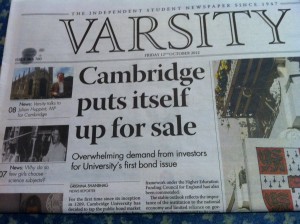No matter how much hardware you stuff into a device at less cost than your competitor, if your ecosystem is inferior, and your apps just aren’t as good, then it doesnt matter what you put in that pile of silicon, plastic and metal.
As a device manufacturer, the ecosystem that you are capable of offering to your customers is worth more than all of your component integration, period.
However, it just so happens that Apple’s component integration is also better than the Nexus 7. Don’t believe me? I own a Nexus 7 and I’ve been travelling with it as my only tablet device since the device was released.
Also Read: Nexus 7, Push comes to shove, I prefer my iPad
I also own an iPad 3 and an iPhone. The only reason why I own a Nexus 7 is that I like to travel with at least one current generation iOS and Android device at any time, because I actually write about this stuff.
But as a consumer? If I had to choose between the Nexus 7 and and iPad mini, I’d much rather have an iPad mini. And I’m a real bona fide, certified geek, a Linux and open source evangelist, and a professional technologist that actually works as one for a living. I don’t just play one on TV, folks.
It’s true that on paper that the 8GB version of the Nexus 7 is only $199 (the 16GB version is $249, and the iPad mini starts at with 16GB at $329) and has some theoretically better components in it, such as a quad core processor, more integrated RAM, and a higher resolution display. It also has a similar resolution front-facing camera.
Have you ever actually USED most Android apps on a Nexus 7 versus an iPad 2, which shares the same SoC and screen resolution as the iPad mini? No? Well I have.
Despite the fact that the Nexus 7 has more horsepower and more memory, the iOS apps on balance are better, run faster, and are more stable.
The Skype implementation on Android is a joke, the video rendering and capture is pathetic and the audio transcode is horrendous, so if you plan to do video chats with that 720p camera, fuhgeddaboudit. And Google Video Chat on G+ is even worse.
Worth reading in full.




